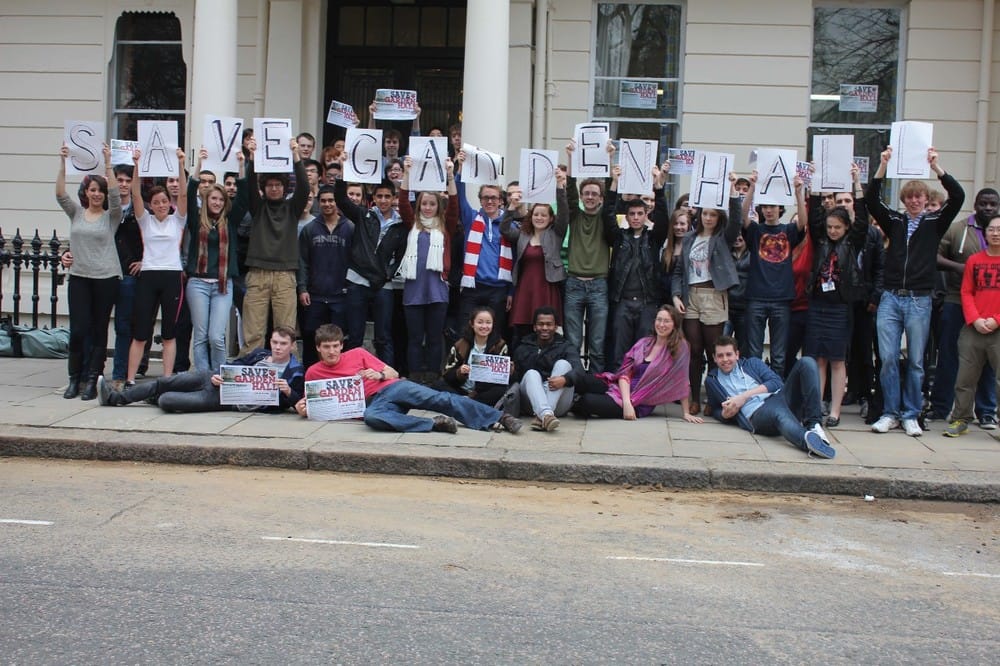Could Imperial ever go on a rent strike?
UCL have had a successful history of striking over housing but could the students of Imperial ever rise up and do the same?

We’ve had our fair share of housing disputes at Imperial.
If you think people don’t care, check out the ICTV’s ‘Imperial Questions Live’ debate on the subject of Weeks hall from last year. Think union council but with ironed shirts and better behaviour since it’s on YouTube for eternity and there were grown-ups present.
150 students at UCL have been striking since late January, refusing to pay their second term’s rent, which was due at the start of the year. Altogether, this amounts to £250,000’s worth of rent. They are demanding a 40% cut in prices and a rent cap for future students. The students are split between two halls, but most are in one in Camden. Although the halls are well-known for having cockroaches and mice, they aren’t nearly as bad as the halls involved in UCL’s previous successful rent strike. In these halls, loud building work was audible all day every day in bedrooms during the exam period, despite promises that renovations would be over in months.
Perhaps the most interesting thing to come of UCL’s previous rent strike is that it actually worked. Last year, students withheld rent and held protests at several halls and were eventually reimbursed for one term’s rent. UCL had initially warned the students that they could face academic sanctions if they didn’t pay, but these threats were swiftly removed after legal warnings from the government. Consumer rights bodies also reminded UCL and its students that you cannot be academically penalised for outstanding non-tuition fee debts.
Even without the threat of no graduation, is such a display of financial dissidence realistic here at Imperial? Students often complain about the high rents in first year, but after that, we tend to disappear into the private housing system. If first year students were effectively mobilised as they were at UCL, it would be possible.
You cannot be academically penalised for outstanding non-tuition fee debts
Organisers of UCL’s Cut the Rent campaign told FELIX that the rent strike had been organised by simply knocking door to door in the halls concerned. At the suggestion that some campuses are more up for direct action than others, the representative told us something along the lines of: if you can do it here, you can do it anywhere.
Cut the Rent told us that a critical mass of students involved was needed, not only for the plan to work, but for other students to join in and the campaign to snowball. Their successful rent strike had between a third and half of the residents striking.
It’s easy to complain that students at Imperial aren’t interested in the political, or social justice issues, but over the years when it comes accommodation, students have proved that they do care.
In 2014, the college conducted a Residential Experience Review, with one of the outcomes being a dedication to transparency, but little evidence of this has been seen.
Last year, Weeks halls was shut down. The hall wardening team at the time had no idea that this was even on the cards, and only found out that union council had voted to support the college’s closure decision after having seen FELIX’s Twitter feed the next day. After an emergency council meeting, and two re-votes, council once again chose to support the closure of the halls. Although Woodward rents were reduced from college’s original plans, the union’s ‘Against Acton’ campaign arguably came far too late to succeed.
Garden hall is still empty, and has been for three years now. Protests and change.org petitions were bandied about back in 2013 but to no avail. Imperial’s most oversubscribed hall was shut down at the end of that academic year. As urgent as the space was needed by college, reportedly for offices, it took a further two years for the furniture inside the halls to be removed.
Fees rebates at Imperial are not unheard of. Several first-year students at halls across Eastside and Xenia have complained that the size of their rooms are not consistent with others in their rent band and have received sizable amounts of cash back. There is obviously a jump from this to not paying any rent at all, but it’s not an unfamiliar concept to private landlords like those running Xenia or university-run halls.
Essentially, it’s a case of university profit over student experience, but with the government’s higher education green paper likely to go through, student satisfaction will soon affect how much universities can charge in tuition fees. For this reason, top universities like ours will be more eager than ever to improve National Student Satisfaction survey scores, and as accommodation is such an implicit part of your experience, it should be high up on Imperial’s list of priorities.







